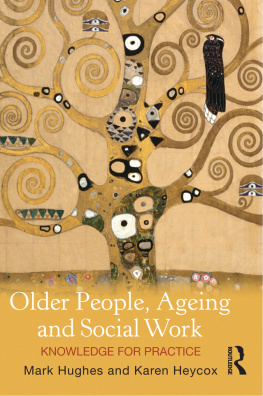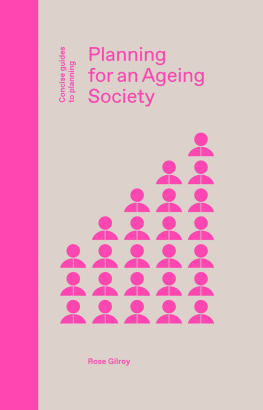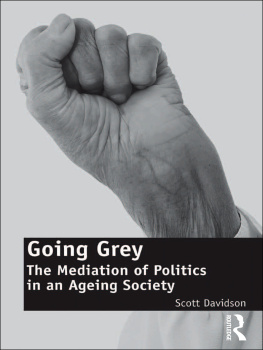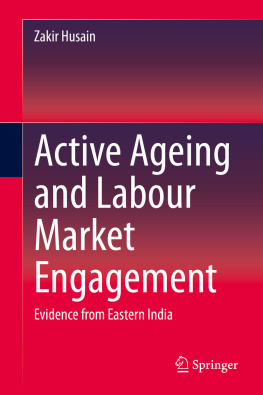

This edition published in Great Britain in 2010 by
Policy Press
University of Bristol
6th Floor
Howard House
Queens Avenue
Clifton
Bristol BS8 1SD
UK
e-mail
www.policypress.co.uk
North American office:
Policy Press
c/o The University of Chicago Press
1427 East 60th Street
Chicago, IL 60637, USA
e:
www.press.uchicago.edu
The Policy Press 2010
British Library Cataloguing in Publication Data
A catalogue record for this book is available from the British Library.
Library of Congress Cataloging-in-Publication Data
A catalog record for this book has been requested.
ISBN 978 1 84742 192 0 paperback
ISBN 978 1 84742 193 7 hardcover
The right of Peter Lloyd-Sherlock to be identified as author of this work has been asserted by him in accordance with the 1988 Copyright, Designs and Patents Act.
All rights reserved: no part of this publication may be reproduced, stored in a retrieval system, or transmitted in any form or by any means, electronic, mechanical, photocopying, recording, or otherwise without the prior permission of The Policy Press.
The statements and opinions contained within this publication are solely those of the author and not of the University of Bristol or The Policy Press. The University of Bristol and The Policy Press disclaim responsibility for any injury to persons or property resulting from any material published in this publication.
The Policy Press works to counter discrimination on grounds of gender, race, disability, age and sexuality.
Cover design by Qube Design Associates, Bristol
Front cover: image kindly supplied by www.photodisc.com
Printed and bound in Great Britain by TJ International, Padstow
Readers Guide
This book has been optimised for PDA.
Tables may have been presented to accommodate this devices limitations.
Image presentation is limited by this devices limitations.
Contents
ADL | activities of daily living |
ANC | African National Congress |
DALY | Disability-Adjusted Life Year |
EPF | Employee Provident Fund |
GDP | Gross Domestic Product |
ILO | International Labour Organisation |
IMF | International Monetary Fund |
IMSS | Instituto Mexicano del Seguro Social |
[Mexican Institute for Social Security] |
ISI | import substituting industrialisation |
LTC | long-term care |
NGO | non-governmental organisation |
PAMI | Programa de Atencin Mdica Integral |
PHC | primary healthcare |
PPP | purchasing power parity |
SSF | Social Security Fund |
TFR | total fertility rate |
WHO | World Health Organization |
The research and writing time for this book was mainly funded by a research fellowship from the Leverhulme Trust.
A large number of people made helpful contributions to the book, including Kathrin Forstner, Paramita Muljono, Joel Busher, Milena Arranciaba, Penny Vera-Sanso, Janet Seeley, Marium Moyet, Rajib Biswal, Sharaf Abbas Khan and several anonymous readers commissioned by The Policy Press.
Peter Lloyd-Sherlock is Professor of Social Policy and International Development at the School of International Development, University of East Anglia. He previously held lectureships at the London School of Hygiene and Tropical Medicine and the University of Glasgow. Peter has led research projects on population ageing and older people in Argentina, Brazil, South Africa and Thailand. His published books include P. Lloyd-Sherlock and P. Johnson (eds) Ageing and social policy: Global comparisons , London, STICERD Publications (1996); P. Lloyd-Sherlock Old age and poverty in the developing world:The shanty towns of Buenos Aires , London, Macmillan (1997); P. Lloyd-Sherlock, (ed) Healthcare reform and poverty in Latin America , Institute of Latin American Studies and Brookings Institution (2000); P. Lloyd-Sherlock (ed) Living longer: Ageing, development and social protection , Zed Books/United Nations Research Institute for Social Development (2004). He was lead author for Guide to the National Implementation of the Madrid International Plan of Action on Ageing , United Nations Department of Economic and Social Affairs (2008).
Peter was 43 years old at the time of publication, and is looking forward to an active and fulfilled old age.
The number of people aged 60 and over is projected to increase by one and a quarter billion between 2010 and 2050, reaching 22% of the worlds total population. Of these, 81% will be living in Asia, Africa, Latin America or the Caribbean (United Nations Population Division, 2008). What will this mean for the world and what will old age mean for these people?
In April 2009, as part of a larger study, I interviewed two older women living on the same street in Cape Town, South Africa. Both were aged in their early sixties and both received a basic pension from the government. The first woman I interviewed was paralysed and bed-bound, having suffered a series of strokes. She was depressed and gave a confused account of her life and experiences. She had been frequently hospitalised and was dependent on her immediate family to meet her care needs and keep her spirits up. The second woman was in good health and had a positive outlook on life. She helped care for several grandchildren, ran errands for other family members and was a regular church-goer.
These contrasting experiences of later life are not unusual. Instead, they are typical of the huge diversity of situations faced by older people around the world. Despite this, discussions about population ageing and the lives of older people are often framed by a number of stereotypes and generalisations. These include:
Population ageing is problematic for development.
The situation faced by older people across developing countries is broadly similar. For example, it is often claimed that the vast majority of older people in these countries experience poverty, vulnerability and withdrawal.
This book contends that:
Population ageing must be seen as an integral part of development, rather than an external threat to it.
Processes of development are complex and highly variable, giving rise to diverse patterns of population change.
At the same time, complex and variable processes of development lead to diverse experiences of later life.
Population ageing can affect most aspects of development, but these effects will be significantly modified by how later life is experienced. Put bluntly, if most experiences of old age are similar to the first woman mentioned above, then population ageing will indeed be problematic for development. In this case, extended life expectancy will add little to an individuals lifetime wellbeing. If, on the other hand, most experiences of old age are closer to the second womans, then the effects of population ageing will be benign and extended life expectancy will represent a significant contribution to individual wellbeing.







